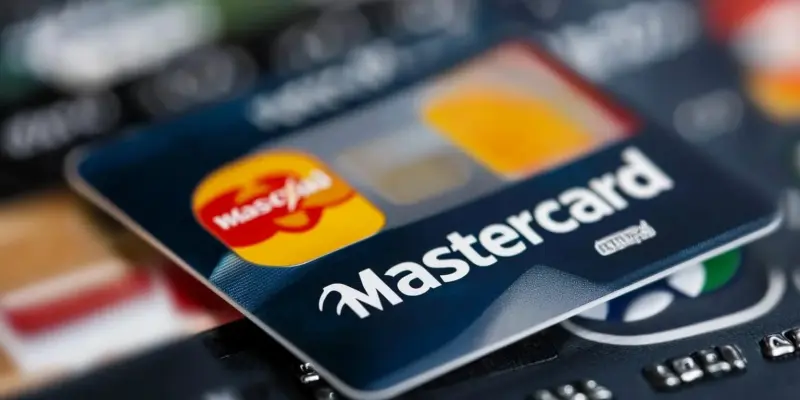Africa’s digital payments economy is undergoing a significant transformation driven by increased internet penetration and expanding financial inclusion. A report commissioned by Mastercard and conducted by Genesis Analytics projects that Africa’s digital payments economy will reach $1.5 trillion by 2030. Mastercard, a longstanding technology partner in Africa, aims to enhance digital connectivity, expand economic opportunities, and enable businesses and individuals to thrive in the rapidly growing digital economy.
Enabling Africa’s Micro, Small, and Medium Businesses (MSMEs)
Micro, Small, and Medium Businesses (MSMEs) are pivotal to Africa’s economic landscape, contributing over 50% to the continent’s GDP. Mastercard is committed to providing digital solutions that empower these businesses and fuel economic growth. The Mobilizing Access to the Digital Economy (MADE) Alliance: Africa, a joint effort with the African Development Bank Group, aims to extend digital access to essential services for 100 million individuals and businesses within the next decade. As part of this initiative, Mastercard plans to register 15 million users in Africa on Community Pass, a social enterprise program connecting remote and rural communities to vital services.
To further this goal, Mastercard will enhance access to its proprietary solutions such as Tap on Phone and SME-in-a-Box. These tools, along with the Track Micro Credit Program, will provide necessary finance to thousands of micro merchants. Entrepreneurs will also benefit from educational resources like The Entrepreneur’s Odyssey and the Mastercard Trust Center, which offer valuable learning opportunities. These comprehensive digital solutions aim to provide MSMEs with the tools to efficiently operate and compete in the digital economy, thereby driving economic growth throughout the continent.
Mastercard’s commitment extends beyond merely providing digital tools. The company is also dedicated to creating an enabling environment for MSMEs through inclusive policies and partnerships. By collaborating with various stakeholders, including local governments, financial institutions, and NGOs, Mastercard aims to ensure that these digital tools and resources are accessible to even the most remote and underserved communities. This comprehensive approach not only drives economic growth but also promotes financial inclusion by integrating MSMEs into the formal economy, enhancing their ability to access formal financial services and markets.
Empowering Africa’s Fintech Sector
The fintech sector in Africa plays a crucial role in driving digital transformation and economic advancement. Nearly half of all fintech companies in Africa have been established within the last six years, collectively raising $6 billion in equity financing since 2000. Mastercard supports fintech growth and market expansion by forming strategic partnerships with banks, telcos, and service providers across the continent and globally. Notable collaborations include partnerships with M-Pesa in Kenya and MTN Group Fintech, which offer digital financial services through mobile money platforms.
In addition, Mastercard’s collaboration with digital wallet providers and e-commerce platforms aids in integrating payment solutions, facilitating seamless transactions for consumers and merchants. The Fintech Express program provides an end-to-end experience for fintech companies aiming at card issuance while leveraging Mastercard’s identity, biometric, AI, and open banking capabilities to protect consumers from internet and payment scams. This multi-faceted approach ensures that fintech firms can innovate and scale efficiently while maintaining high security standards, which is crucial for fostering consumer trust in digital financial services.
Furthermore, Mastercard’s partnership with fintech companies goes beyond just technology integration—it involves a comprehensive support system that includes mentorship, regulatory guidance, and market access. By fostering an ecosystem where fintech companies can thrive, Mastercard is not only driving innovation but also helping to solve some of the continent’s most pressing financial inclusion challenges. These efforts are poised to create a ripple effect, promoting financial literacy and access to a broader range of financial products and services for the unbanked and underbanked populations across Africa.
Scaling Remittances and Cross-Border Payments
Africa’s digital payments economy is witnessing a substantial transformation fueled by an increase in internet access and a push towards greater financial inclusion. According to a report commissioned by Mastercard and carried out by Genesis Analytics, Africa’s digital payments economy is forecasted to hit $1.5 trillion by the year 2030. Mastercard has been a steadfast technology partner on the continent for many years. Their goal is to enhance digital connectivity further, create broader economic opportunities, and help businesses and individuals flourish in this swiftly evolving digital landscape. Mastercard’s initiatives are designed to foster an environment where digital transactions become the norm, thereby helping to bridge the financial inclusion gap that has long existed in various African regions. By leveraging technology and providing strategic support, Mastercard is committed to driving the growth of the digital payments ecosystem, ultimately contributing to a more connected and economically vibrant Africa.

